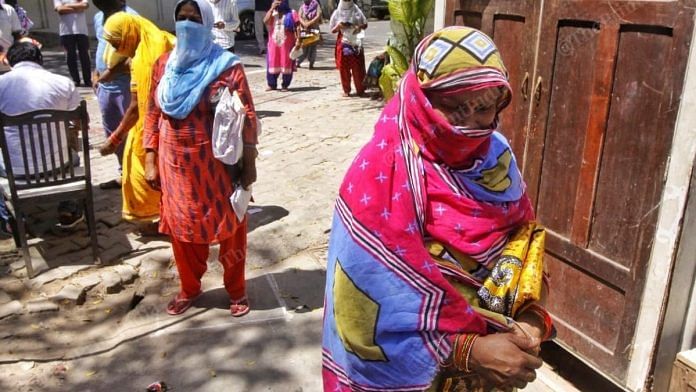New Delhi: The Economic Survey 2020-21 has proposed to further slash the budget for food subsidy through increasing the prices of foodgrains at ration shops under the Public Distribution Scheme (PDS) of the National Food Security Act (NFSA).
Stating that the food subsidy cost was becoming “unmanageably large”, the survey suggested that while it’s difficult to reduce the economic procurement cost of foodgrains and management in view of rising commitment towards food security, there is a need to consider the revision of foodgrain prices provided through PDS to reduce the bulging food subsidy bill.
The food subsidy is utilised to provide foodgrains for poor people through ration shops under PDS at highly subsidised rates of Rs 3/kg for rice, Rs 2/kg for wheat and Rs 1/kg for coarse grains. These foodgrains are provided through ration shops to over 80 crore beneficiaries of the NFSA.
These subsidised rates of wheat and rice for NFSA beneficiaries have not been revised since the introduction of the Act in 2013.
Procurement costs have risen
The survey, authored by Chief Economic Advisor Krishnamurthy Subramanian, makes the case that while on one hand the central issue price (CIP) — the subsidised rate at which food grains are distributed through ration shops — has remained unchanged since 2013, on the other hand, the procurement cost, storage and distribution of wheat has increased from Rs 1,908/quintal in 2013-14 to Rs 2,683/quintal in 2020-21.
Similarly, the economic cost of rice has increased from Rs 2,615/quintal in 2013-14 to Rs 3,723/quintal in 2020-21. According to the survey, the food subsidy bill has increased to Rs 1,71,127.5 crore in 2018-19 from Rs 1,13,171.2 crore in 2014-15.
It is, however, worth noting that already in last year’s budget, the revised estimates of the 2019-20 food subsidy bill showed at Rs 1.08 lakh crore, which was 41 per cent lower than what had been originally budgeted at Rs 1.84 lakh crore.
Also read: Economic Survey notes ‘improvement in equity’ — better access to bare necessities across India



